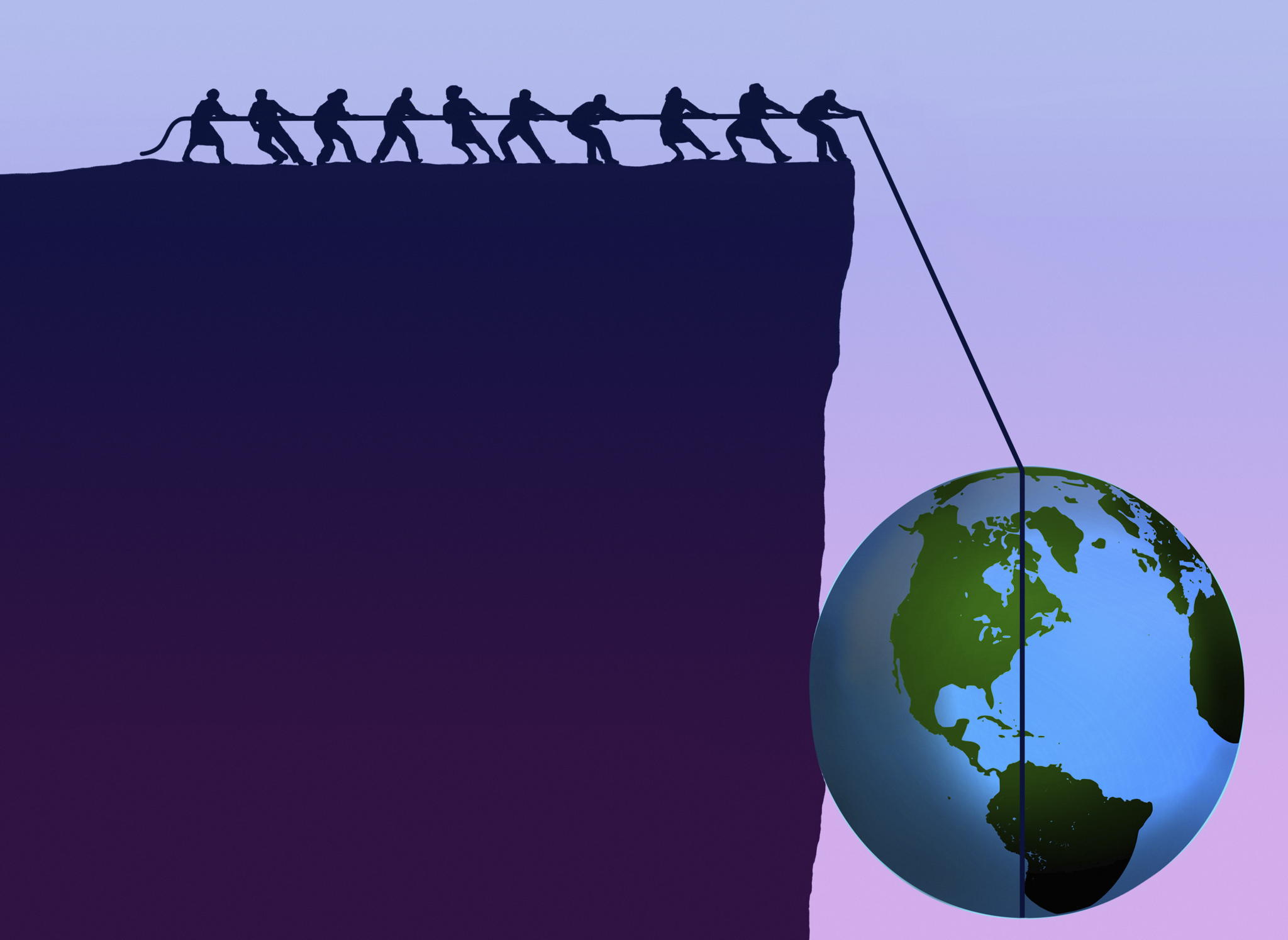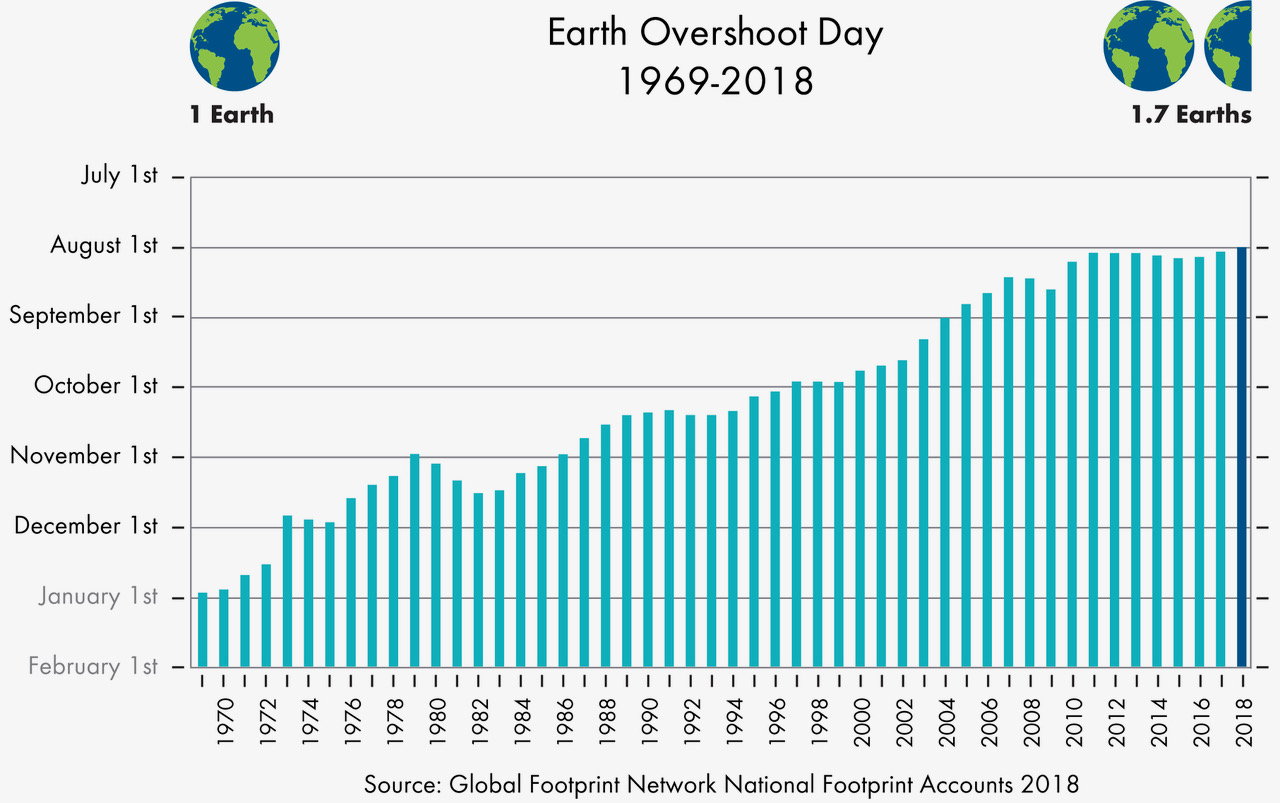This year's Earth Overshoot Day falls on 2 August

Earth Overshoot Day - the point when the resources the Earth produces each year are used up - falls on 2 August this year. "If we continue to consume at the current global rate, we will need 1.7 planets," says the World Wildlife Fund (WWF). They day would fall on 26 March if the whole world consumed like Belgium.
Earth Overshoot Day, or Ecological Debt Day, is the day in a given year when - counting from 1 January - humanity worldwide has used as much of the Earth's resources and food as the Earth can replenish in a year.
"We are rapidly depleting our ecological resources and producing huge amounts of pollution"
"We are rapidly depleting our ecological resources and producing huge amounts of pollution, mainly carbon dioxide emitted into the atmosphere from burning fossil fuels," WWF said in a press release. Today, we are increasingly experiencing the consequences of this way of life, such as water shortages, floods and forest fires
In time, even food production will be threatened. "If the Earth is an apple tree, we don't just eat the apples. We cut down the whole tree," says Koen Stuyck, a policy officer at WWF Belgium.
IPCC target
"To meet the United Nations IPCC target of a 43 per cent reduction in global carbon emissions by 2030 compared to 2010 levels, we need to move Earth Overshoot Day back by 19 days each year for the next seven years," says Stuyck.
According to WWF, the solutions are relatively simple. Increasing low-carbon electricity sources from 39 to 75 per cent would push Earth Overshoot Day back by 26 days. This day would fall on 26 March if the entire world consumed like Belgium. "We would then need up to 4.1 Earths," says Stuyck.

The first Earth Overshoot Day was on 19 December 1987. Since then, the day has fallen earlier in the year as the decades have progressed. In 2020, it fell on 22 August, more than three weeks later than in 2019, due to worldwide coronavirus-related lockdowns.
Earth Overshoot Day is calculated by Global Footprint Network, an independent think tank founded in 2003. The network was initially based in the US, Belgium and Switzerland and has been incorporated as a non-profit organisation in the three countries.
Its mission is to develop and promote sustainability tools that measure how much we have and use. These tools aim to put ecological limits at the heart of decision-making.
© IKONIMAGES
Related news

